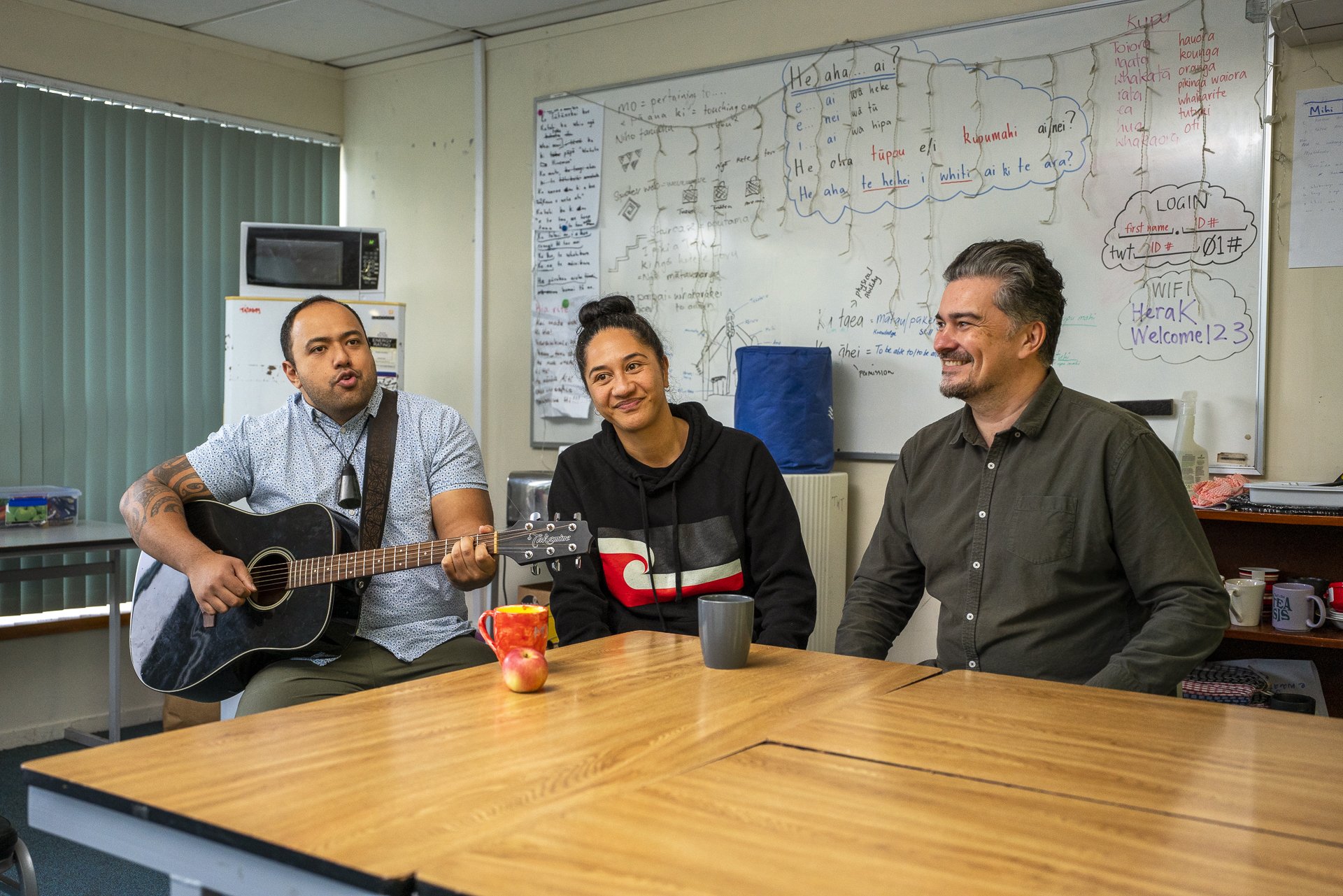Study and train at wānanga, Te ako me te whakangungu i ngā wānanga
Updated 15 Dec 2025
Wānanga learning is grounded in kaupapa Māori (ideology) and āhuatanga Māori (tradition). You can study for qualifications at every level in a mātauranga Māori (knowledge) environment that is informed by tikanga Māori (customs).

What wānanga study involvesNgā āhuatanga e whai wāhi ana ki te ako i te wānanga,
At the heart of wānanga learning is mātauranga Māori – the concepts of knowledge and ways of knowing brought to Aotearoa by Māori ancestors.
As you learn your chosen subjects, you’ll also learn Māori ways to think about the world around you and how to act with tikanga Māori.
Te reo Māori is an important part of wānanga learning. Te reo is a doorway to the Māori way of looking at the world. Whatever you choose to learn at a wānanga, your knowledge and appreciation of te ao Māori will also grow.
Wānanga welcome ākonga from diverse backgrounds and situations. Many courses have options like distance, online and part-time learning that let you fit study around the rest of your life. Some courses include noho marae, where you join other ākonga and learn on a marae for a few days at a time.
What you do as a wānanga studentNgā mahi e mahi ana koe hei ākonga wānanga,
As a wānanga ākonga, your learning will be lifted by whanaungatanga. You won’t be left on your own – you’ll share experiences with your learning whānau and always have a group of people supporting you.
The learning you experience will depend on the programme you choose. Wānanga offer a wide range of subjects, levels and learning approaches. One ākonga could be discovering iwi history on their marae while another completes Te Ōhanga Mataora Bachelor of Health Sciences Māori Nursing.
What you get from a wānanga programmeNgā hua ka whiwhi koe i te hōtaka wānanga,
Learning at a wānanga means you can get qualifications while increasing your understanding of mātauranga Māori and tikanga Māori. You can join a wānanga at any stage of your learning journey and increase your self-confidence and abilities.
A strong understanding of mātauranga Māori is highly valued in many jobs and can lead to leadership opportunities.
The knowledge you gain from wānanga learning will help you to support and strengthen your whānau, hapū and iwi. As mātauranga Māori is shared with you, so too will you be able to share it with whānau and pass it on to the next generation.
What can you study and whereNgā wāhi me ngā marau e taea ai ngā mahi ako,
There are 3 official wānanga in Aotearoa. Visit each wānanga website for the full story.
Locations | Sites in more than 80 towns and cities |
Distance learning options? | Yes |
Qualification levels offered | Level 1 certificate to Level 9 Master’s degree |
Some subjects that are offered |
|
Locations | Campuses in Ōtaki, Gisborne and Manukau |
Distance learning options? | Yes |
Qualification levels offered | Level 4 certificate to Level 9 Master’s degree |
Some subjects that are offered |
|
Locations | Campuses in Whakatāne, Manukau and Whangārei |
Distance learning options? | Blended learning – most courses include noho, |
Qualification levels offered | Level 1 certificate to Level 10 PhD |
Some subjects that are offered |
|
What you need to get into a wānangaNgā mea me whai koe kia uru ai ki tētahi wānanga,
You must meet the definition of a domestic student to enrol at a wānanga. If you’re a New Zealand citizen or permanent resident, you’re a domestic student.
Definition of a domestic student – Ministry of Education
Programmes have different entry requirements, depending on the subject and level. Find out what you need by looking up your programme on the wānanga website.
Visit the wānanga website to check entry and programme requirements.
Ways to pay for wānanga study and trainingNgā āhua utu i te ako me te whakangungu i te wānanga,
Depending on what programme you study, you can apply for student loans and allowances, and scholarships.
You can complete a range of courses for free through wānanga, including courses in te reo Māori and tikanga Māori. Check the wānanga website for details.